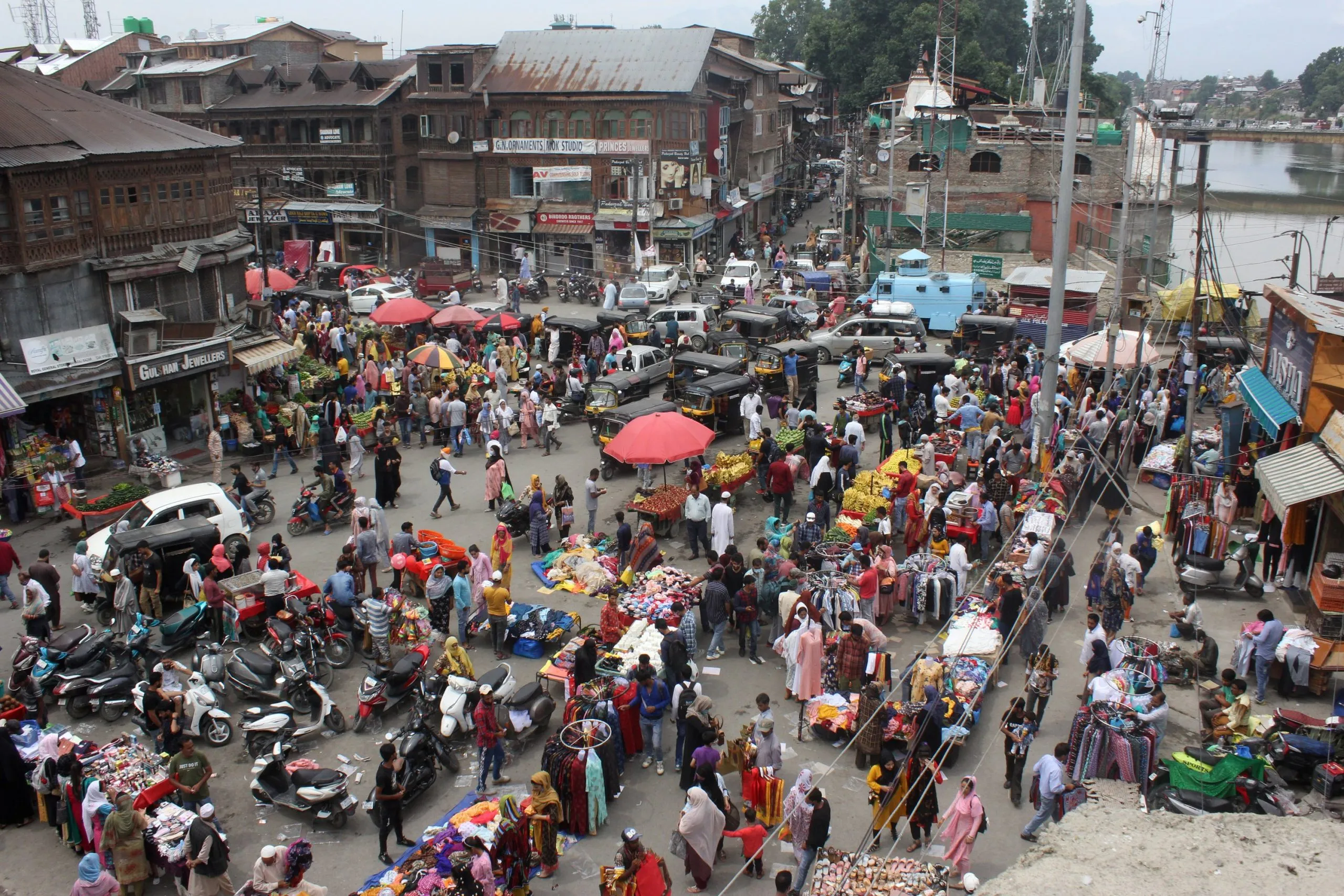Srinagar: Arshid Ahmad, who sells garments in the Nowhatta market within the Old City, is currently grappling with the challenge of repaying a bank loan while also managing his daily expenses.
In response to his financial difficulties, he has reduced the number of salesmen working for him.
Following the COVID-19 pandemic, Ahmad expresses his belief that business operations have not rebounded to their pre-pandemic levels.
He is burdened by substantial bank loans, and this he believes has led to a sense of distress prevailing in the market.
To gain insight into the current market conditions, this reporter interviewed several traders and businesspeople operating within the markets.
Whether it was related to obtaining loans or facing liquidity problems, each individual had their own explanations for the decline in business activities. However, the consensus among them was that the markets in the Valley are indeed going through a challenging period.
Traders of the City’s centre Lal Chowk market who used to record brisk sales are also complaining of a decline in sales and business activities.
Farhan Kitab, Chairman,Joint Traders Association, which represents various markets including the City Centre Market, conveyed that the business community in Kashmir, excluding the tourism sector, has yet to recover from the financial setbacks endured both during and prior to the COVID-19 pandemic.
“During the pandemic, banks introduced COVID-related loans, which means that now traders are burdened with the responsibility of repaying two sets of loans. This includes the loans they had previously acquired, as well as the newly acquired COVID loans. The revenue they generate is primarily allocated towards loan repayments, leaving them with limited resources for reinvesting in their businesses,” explained Kitab.
He also highlighted another pressing issue faced by the traders in the City Centre area, which is the impact of the Smart City project. Kitab noted, “Apart from the visual enhancements it brought, the project has resulted in a decline in our sales. This is primarily due to the fact that the rerouting of public transport has diverted foot traffic away from our vicinity, leading to a significant reduction in customer visits. As a result, our footfall has dwindled considerably.”
Aijaz Shahdhar, President, Kashmir Traders Alliance, stressed the pressing requirement for a financial stimulus package to invigorate Kashmir’s economy.
While the tourism sector in Kashmir has exhibited significant improvement, other sectors of the economy are struggling and require focused attention.
Shahdhar emphasised that banks should adopt a more accommodating approach toward the business community, encouraging economic revival.
Peer Imtiyaz, President Batamaloo Traders Association, conveyed that the circumstances in the Batamaloo market mirror those in other regions of Kashmir. He explained that Batamaloo serves as the wholesale hub of Kashmir, housing numerous primary wholesalers. “However, in this market, some traders have been compelled to sell their shops to settle their outstanding loans. The overall situation is arduous for the business community, as they have yet to recover from their previous losses. Additionally, the stringent approach of banks toward borrowers has pushed many to liquidate their properties to meet their loan obligations. Simultaneously, the lack of substantial business activity has left them in a state of distress.”
Imtiyaz also mentioned that they have repeatedly appealed to the government to introduce a stimulus package to inject capital into the market, but as of now, no such initiative has been undertaken.”
The conditions in downtown markets closely resemble those in other parts of Kashmir, with traders consistently voicing concerns about the sales slump and financial hardships they are facing.
Imtiyaz Ahmad, Vice President of Shahr-E-Khas Traders & Manufacturers Coordination Committee and Federation, expressed his concern regarding the increasing number of traders whose accounts are transitioning into non-performing assets (NPAs). He pointed out that the primary reason for this predicament is the ongoing business downturn, which has placed traders in the difficult position of having to repay loans while also managing their escalating operational costs. This challenge comes at a time when there has been no significant improvement in business turnover since the COVID-19 pandemic.
Ahmad further noted that while the administration may cite GST collection figures to suggest economic progress, the reality on the ground tells a different story. He explained, “Even if a product that was sold for Rs 4,000 in 2020 is now priced at Rs 8,000, it doesn’t necessarily signify economic growth. This apparent increase in prices is primarily due to inflation, and as a result, tax collections naturally rise. However, the actual growth of businesses has remained stagnant.”







